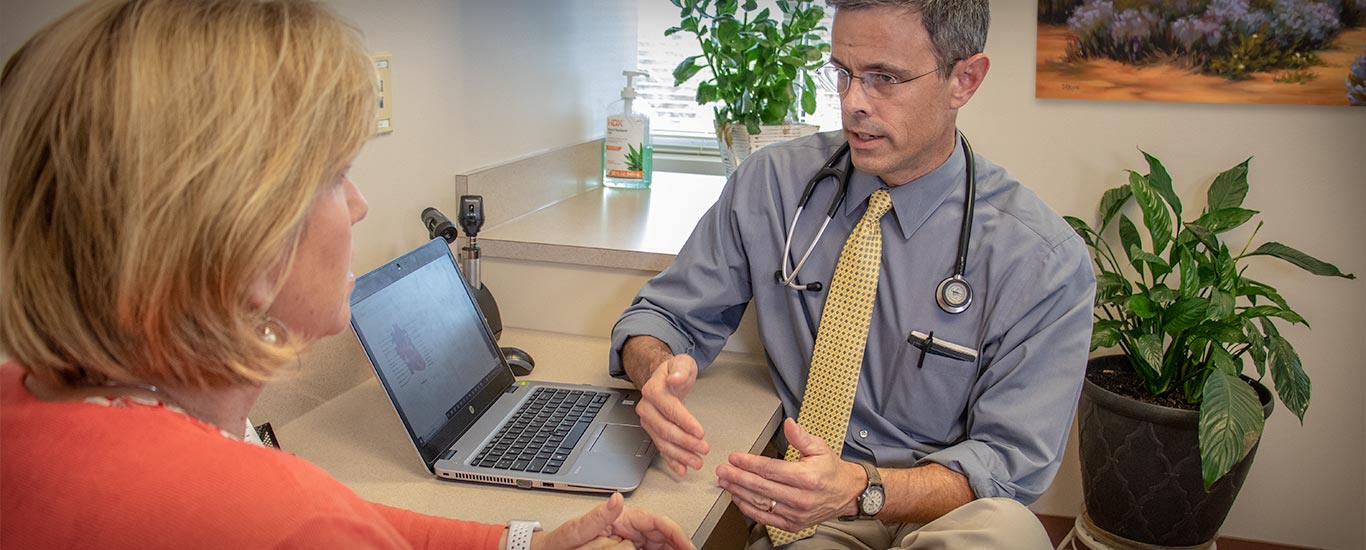
Pink Eye (Conjunctivitis)
Conjunctivitis, commonly referred to as pink eye, is an infection or irritation of the clear covering of the eye and the inside of the eyelids (conjunctiva). This infection or irritation will cause the small blood vessels in the eye to dilate and leads to red, bloodshot eyes.
Types of Conjunctivitis
Conjunctivitis has several causes including viral or bacterial infection, a chemical irritant in the eye, or a foreign object in the eye
Viral conjunctivitis
Like the common cold, this strain of pink eye is caused by a virus and is highly contagious. Viral pink eye is commonly seen in conjunction with other cold symptoms like a sore throat, nasal congestion, and a cough. It is most commonly found in school-aged children, children in day-care, college students, teachers, and day-care center workers.
Some symptoms of a viral infection include:
- itchy, watery eyes
- sensitivity to light
- redness in the white of the eye or eyelids
- swollen conjunctiva (eyelids)
- morning crusting of the eyelids followed by clear drainage through the rest of the day
Bacterial conjunctivitis
Bacterial conjunctivitis is caused by a bacteria, and some bacterial species can cause serious eye damage if left untreated. This strain of pink eye is fairly contagious and spreads through direct contact with infected hands or items that have touched the infected eye. It is less common with approximately 30% of confirmed cases.
Some symptoms of bacterial infection include:
- sticky, yellow or green discharge in one or both eyes
- itchy, burning eyes
- blurred vision
- redness in the white of the eye or eyelid
Allergic conjunctivitis
Allergic reactions can cause pink eye as a result of irritants like pollen, dust or pet dander. This form of pink eye is not contagious.
Some symptoms of allergic conjunctivitis:
- watery, burning itchy eyes
- stuffiness
- runny nose
Treatment
Treatment and finding relief from conjunctivitis varies based on the type of pink eye infection. Viral conjunctivitis will generally go away on its own in a few days as long as there is not reinfection. Bacterial conjunctivitis often requires treatment with antibiotic eye drops prescribed by an experienced primary care doctor in Raleigh. Prescription or over-the-counter allergy medications can generally treat allergic conjunctivitis.
A chemical splash or foreign object in the eye may require urgent treatment to prevent serious eye damage.
Prevention
Viral or bacterial conjunctivitis is often a preventable infection. Follow these few tips to avoid contracting the viral or bacterial strains:
- Avoid sharing personal items such as hand towels, wash cloths or tissues.
- Avoid touching or rubbing your eyes.
- Do not share contact lenses with another person.
- Wash hands or use hand sanitizer frequently.
- Always follow your eye doctor’s instructions for contact lens care and replacement.
- Wear swim goggles when swimming.
- Remove contact lenses before showering, swimming, or being in water of any kind. This helps to avoid trapping bacteria between the lens and your eye.
- Consider wearing glasses in lieu of contact lenses to reduce your risk of pink eye.
When to See Your Doctor
If you have a chemical exposure or think you have a foreign body in the eye, or if you have vision loss or significant eye pain then seek prompt attention. If you’ve been experiencing red, irritated eyes for more than several days, our direct primary care doctor in Raleigh can determine if you have contracted a conjunctivitis infection and identify the cause. At Sentinel Primary Care, we are committed to providing top-notch medical care and helping you find relief fast.


